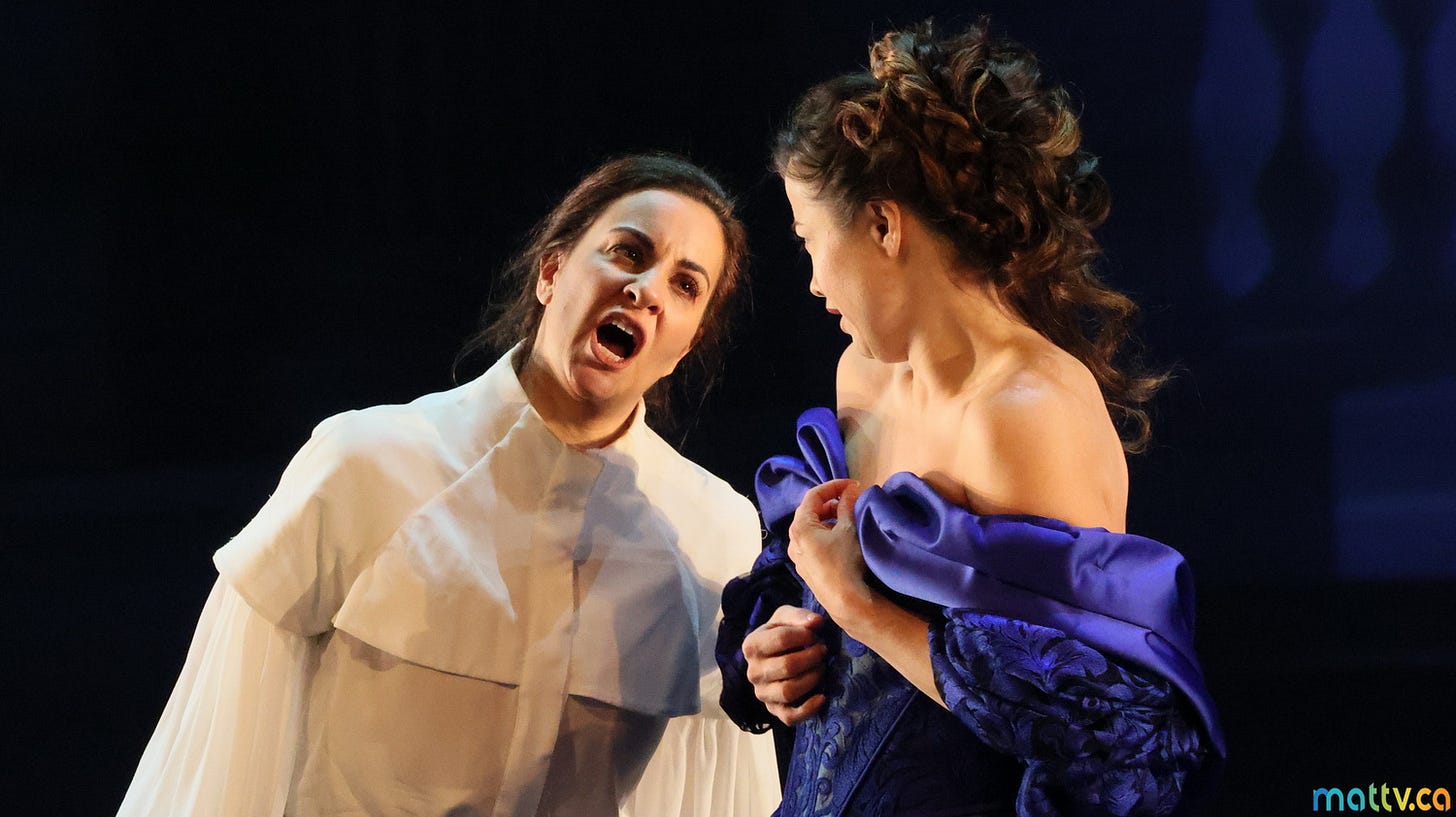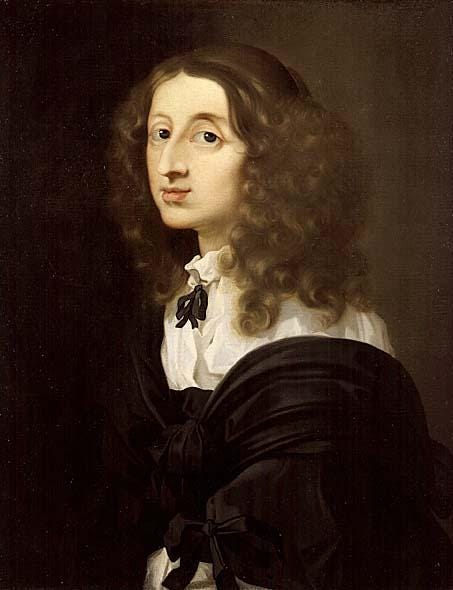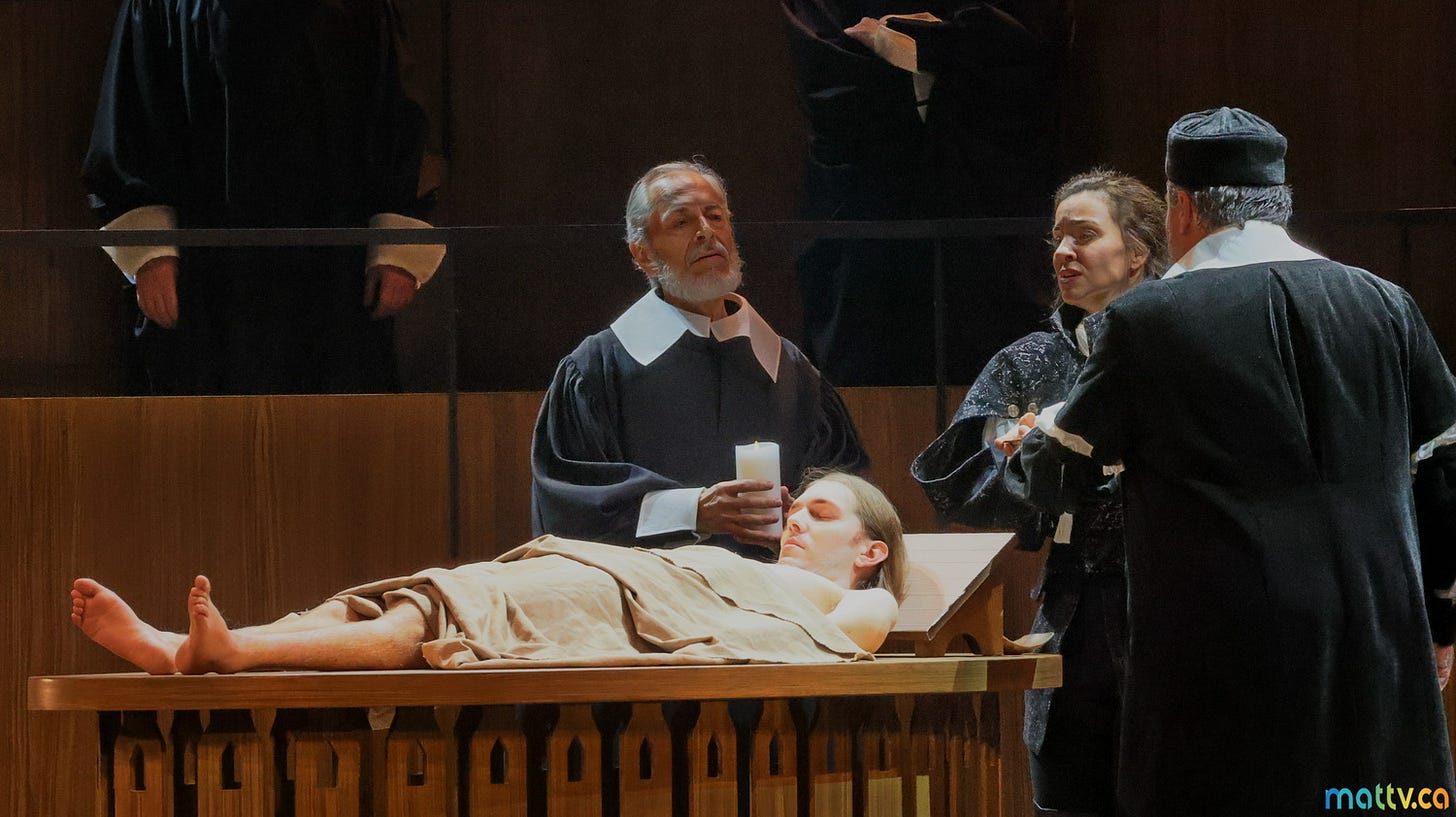It took a while, but La reine garçon (in English: Christina, the Girl King) originally a COC commission during Alexander Neef’s directorship, finally had its world premiere - in Montreal. I took a train to see it last night, without having a clue if the other co-producer, the COC, intended to do anything about it but have meanwhile heard that it’s indeed coming next season. This has not yet been announced, so you can have it as an exclusive. Long Play: come for the rants on the rising illiberalism in Canada, stay for the exclusives on operas about eccentric Swedish queens.
The opera-heads among you will remember that the original pair of creators for the Girl King were Ana Sokolovic as the composer and playwright Michel Marc Bouchard, who was going to rework his Christina, the Girl King play into a libretto. A couple of years into the process, Sokolovic left (over artistic differences, this piece in the weekend Le Devoir suggests) and another Quebec composer, Julien Bilodeau, happily took over. The cast in Montreal was pretty much all-Canadian, about half-half Anglo-Franco, with Joyce El-Khoury in the title role. Production was directed by the German-born director Angela Konrad, currently the artistic director of Montreal’s Usine C. (There’s some excellent programming at the Usine this year, notably Angelica Liddell in Liebestod and Konrad’s own collaboration with Virginie Despentes on the theatrical version of Despentes’ popular Balzac-ian novel about life in contemporary Paris, Vernon Subutex I.)
There’s a long tradition in opera of taking liberties with historical record. Don Carlos? Nero and Poppaea? Titus? Julius Cesar and Cleopatra? Mehmet II? Xerxes? They all live on in operas which are only operatically accurate. Bouchard continues this tradition and just like the librettists who worked for Verdi, Handel, Monteverdi or Rossini, he zooms in on the love story and uses the individual v. social forces dramatic framework. As much as the opera is about the reign of one of the most learned Queens of the 1600s or possibly in history (not a lot of nobles have been intellectuals, whatever the period), it is even more about unrequited love - falling for the wrong person. Melodrama has always been a key ingredient in historical opera.
There is some evidence that Christina loved women, but it’s contradicted by other records and interpretations (jury is out on whether she was asexual, bisexual, sporadically heterosexual, or lesbian - with an understanding, nota bene, that these concepts did not exist in her own era). Her letters to the countess Ebba Sparre read very ardent today, but what can we really know for sure? (Unless some sort of Anne Lister-like diaries exist - and they usually don’t.) This, luckily, didn’t deter Bouchard and he made the Queen-Ebba relationship — its impossibility, the power differential, the Queen’s limitless capacity for self-deception — the core of the work.

The recurring problem in the story of the Queen’s refusal to get married and bear children is accurate, as is her “life as a man”, studying philosophy, theology, sciences, alchemy, drama. Some of the politics, not a great deal, are mentioned in the opera — certainly not a word about her almost bankrupting the country with some creative economic measures — and the wars conveniently end in act 1 so the story can stay focused on matters of the heart and “duty to the realm”. A prominent character in the opera is René Descartes, and it’s true that Christina invited him to her court as one of the philosophy stars of the era. They spent some time conversing on matters philosophical, but the actual Christina disagreed with Descartes’ mechanical view of the human body while the operatic one is intrigued by it, and the anatomy class — which is a brilliant scene in the opera, with Bilodeau employing all kinds of wacky percussion sounds, and Konrad staging it as the famous Rembrandt painting — did not take place. But it’s a way, and a good one, to illustrate some of the Cartesian ideas on the rise and the soprano gets an extraordinary aria on the topic of ‘where in the pineal gland exactly the uncontrollable passions emerge to overrule the reason’ (paraphrasing here). Descartes, having been dragged to Sweden to entertain a monarch and help her set up an academy of science, catches pneumonia and dies. Sweden was the end of him, but we wouldn’t learn that from the opera - this is not his story.





